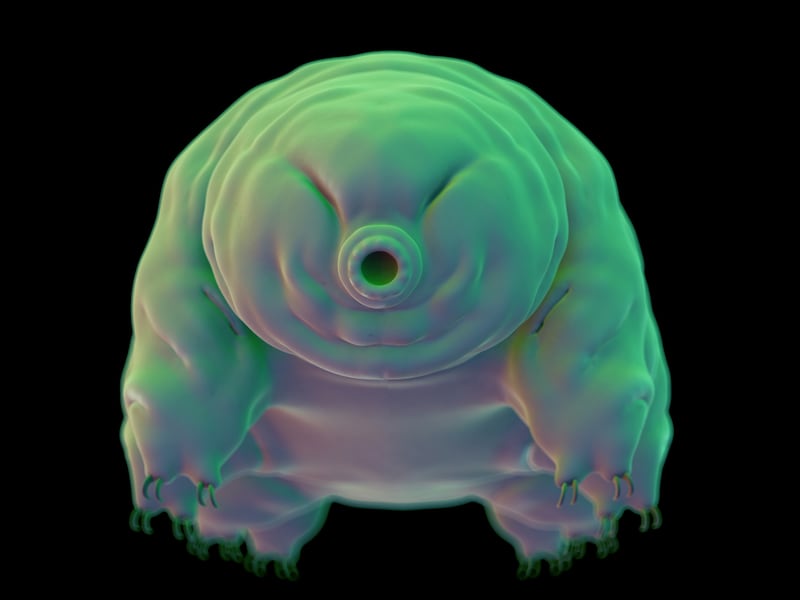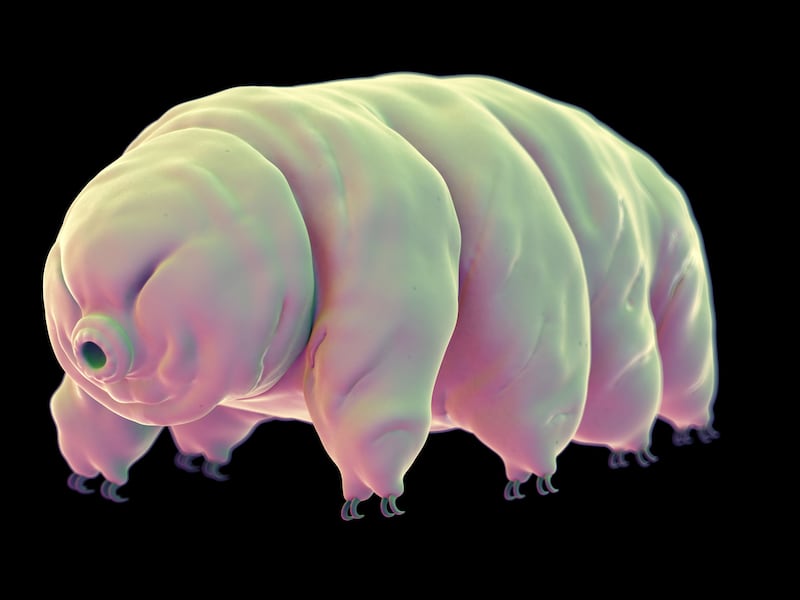A tiny eight-legged animal resembling a broken set of bagpipes is likely to be the last surviving life form on Earth, say scientists.
The microscopic water-dwelling tardigrade will probably stick around for at least another 10 billion years, until the death of the sun, the researchers believe.
Measuring no more than half a millimetre, the creature has the reputation of being the toughest and most resilient critter on the planet.
It can live for up to 30 years without food or water, endure temperatures as high as 150C, and even survive in the frozen vacuum of space.
The Earth's Last Survivors: the #tardigrade, an eight-legged micro-animal, will survive until the Sun dies: https://t.co/ZTT7nv2dnw pic.twitter.com/YDassfSbfw
— Oxford University (@UniofOxford) July 14, 2017
The British and US scientists looked at the likelihood of tardigrades meeting a premature end as a result of extreme cosmic cataclysms such as exploding stars, giant asteroid impacts or gamma ray bursts – incredibly powerful eruptions of energy linked to the formation of black holes.
None of these events was thought to pose a lethal threat to the hardy tardigrade.
Dr David Sloan, from Oxford University’s Department of Physics, said: “A lot of previous work has focused on ‘doomsday’ scenarios on Earth – astrophysical events like supernovae (exploding stars) that could wipe out the human race.
“Our study instead considered the hardiest species, the tardigrade. As we are now entering a stage of astronomy where we have seen exoplanets and are hoping to soon perform spectroscopy, looking for signatures of life, we should try to see just how fragile this hardiest life is.

“To our surprise we found that although nearby supernovae or large asteroid impacts would be catastrophic for people, tardigrades could be unaffected.
“Therefore it seems that life, once it gets going, is hard to wipe out entirely.
“Huge numbers of species, or even entire genera may become extinct, but life as a whole will go on.”
Co-author Dr Rafael Alves Batista, also from Oxford University, said the ability of tardigrades to survive should spur on the search for life on Mars.

He said: “Tardigrades are as close to indestructible as it gets on Earth, but it is possible that there are other resilient species examples elsewhere in the universe.
“In this context there is a real case for looking for life on Mars and in other areas of the solar system in general.
“If tardigrades are earth’s most resilient species, who knows what else is out there.”
The research is published in the journal Scientific Reports.








